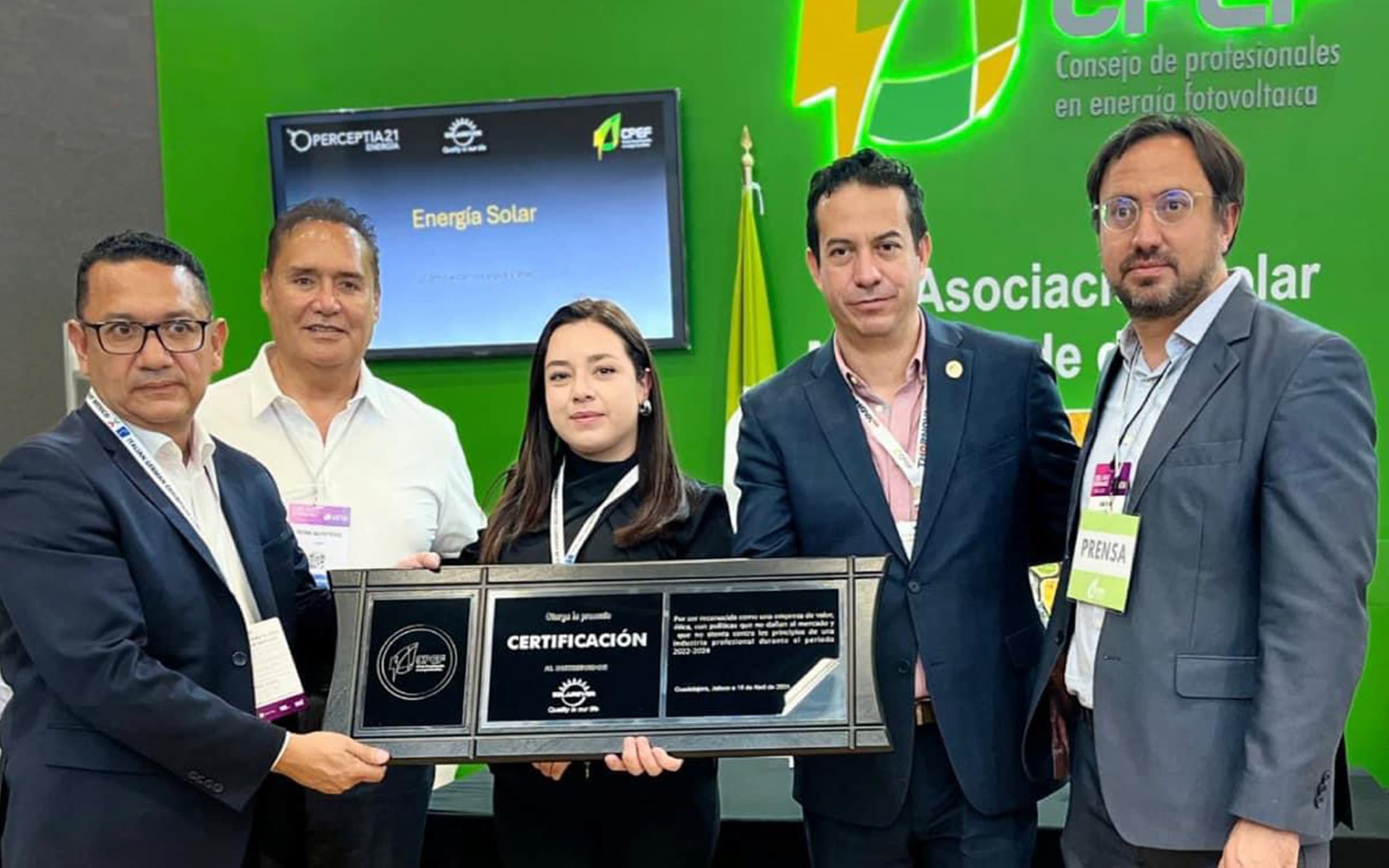

Guadalajara, Jalisco - The CPEF awarded for the first time the Distributor Certification recognition to the outstanding company Solarever, in recognition of its ethical commitment and its policies that promote integrity in the market and the professional advancement of the sector.
The award took place during the Ecomondo trade show and was given to the company that has demonstrated best practices, including verification of the provenance of its products, direct sales to the end user and collaboration with integrators, according to Aldo Diaz, president of CPEF.

During the presentation of the certificate, Ana Laura Barrales, Solarever's Southeast zone manager, highlighted CPEF's crucial role in promoting high standards in the sector and expressed her gratitude for this important recognition.
Juan Carlos Rivas, Solarever's northwest sales manager, emphasized the importance of promoting competition in the solar panel manufacturing sector in Mexico.
During the event, Victor Ramirez, managing partner of P21 Energía, warned about the increase in temperature in the country, which could result in a higher frequency of blackouts this year.

The specialist pointed out that last year was the warmest year ever recorded in the country's history and that, during the first two months of 2024, the average temperature was 1.5 degrees Celsius higher than usual. In addition, Mexico City recently set a new maximum temperature record, which could be broken again during the summer.
"Compliance with the Energy Transition Act is unlikely, and there are likely to be more blackouts every summer, at least through 2028," he warned. In addition, it is estimated that an additional 30 gigawatts of wind and solar capacity will be needed by 2030.
Ramirez also explained that nearshoring could increase energy demand by as much as 8 percent, compared to 4 percent if there is no relocation of supply chains.
Regarding the proposals of the presidential candidates, the specialist recalled that so far, Claudia Sheimbaum, Morena's presidential hopeful, has proposed several measures, such as increasing the distributed generation limit to 1 megawatt, promoting solar roofs and investment in renewables.
However, Ramirez pointed out that these proposals lack specific goals and are not sufficient to meet the demand that nearshoring will generate. In addition, there is a lack of clarity about the origin of the resources.

Ariel Ramirez
Abr 22, 2024